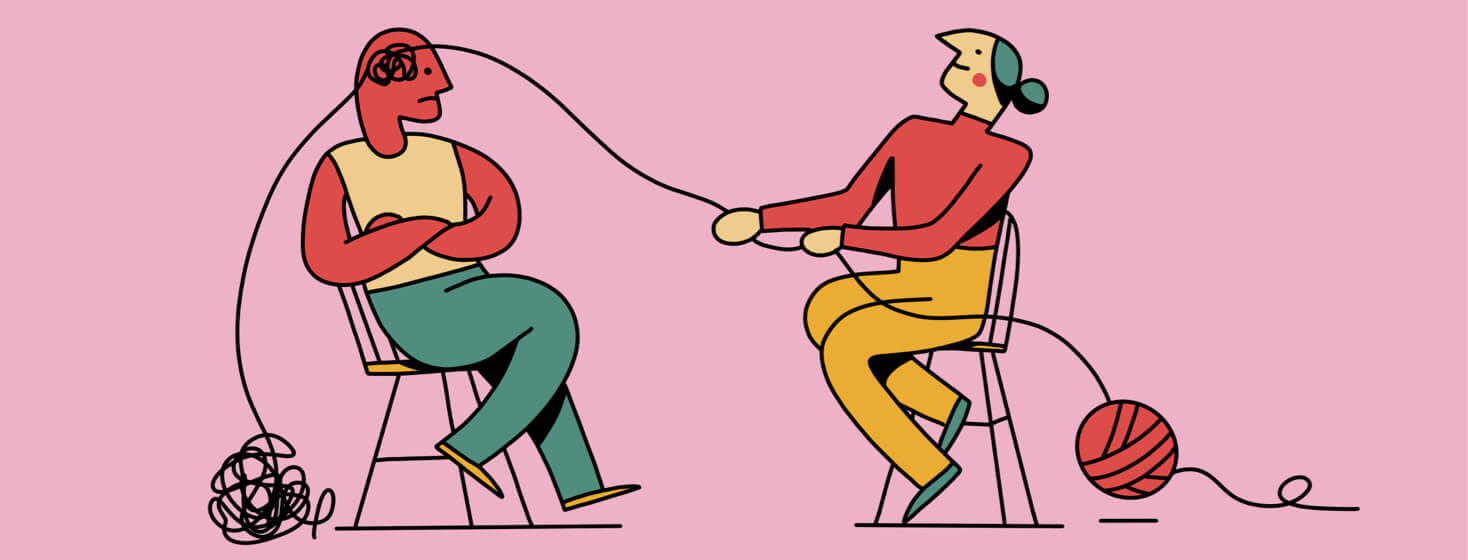Cognitive Behavioral Therapy For Chronic Illness
"What if you never get better?"
That's one of the first questions my behavioral health counselor asked me last year. Specifically, she meant: what if your endometriosis pain and digestion problems never go away? How can you still live a good life?
I found this question off-putting; It seemed defeatist. But she said her point wasn't that I shouldn't keep seeking treatment. It's just that I might feel better if I change the way I think and act around my illness on a daily basis.
I was hesitant about her approach, at first. But I kept up with my appointments.
I'm glad I did. Here's more about my experience.
What is behavioral health counseling?
It's therapy to identify and change all kinds of unhelpful behaviors, and it usually involves a method called cognitive behavioral therapy (CBT). That's a mix of cognitive therapy, the way you think, and behavior therapy, the way you act.
Research shows CBT is one of the most effective forms of psychotherapy. That's true whether you get face-to-face therapy or you follow a guided online or app-based program.1
Here are just a handful of conditions CBT can help with:2,3
- Depression and anxiety
- Substance misuse disorders
- Chronic pain
- Irritable bowel syndrome
- Insomnia
Choosing a behavioral health counselor
I saw a clinical psychologist who works with people who have ongoing medical issues, including chronic pain, injuries, or illnesses.
According to her bio, her interests lie in:
- Mind-body interactions
- Health-related habit change
- Finding hope, meaning, and resilience in the midst of physical suffering
Basically, her goal is to help people with physical problems live a better life, even if their issues don't completely go away or get better.
What I have learned from therapy
In the past, these methods helped me quit ruminating — when you worry about the same thing over and over again. CBT, which uses mindfulness, taught me how to recognize and interrupt these worry loops.
To this day, putting a stop to this habit greatly reduces my depression and anxiety symptoms. This time, my behavioral health counselor helped me identify some unhelpful thought patterns around my endometriosis symptoms.
Here are 3 things I've learned:
I tend to catastrophize. This is a really common trait for people who have anxiety, depression, or chronic pain.
It means you imagine the worst-case scenario for any situation. Studies show pain rumination and catastrophizing — constantly focusing on how bad you hurt — are linked to more intense chronic pelvic pain.4
She said I need to practice de-catastrophizing. Here's an example:
- Catastrophizing: My pain is a sign of uncontrolled endo, ovarian cancer, or worse. It will never end. And if I don't see a doctor right away, this might kill me.
- De-catastrophizing: I've had similar pains in the past. I've seen two surgeons, had ultrasounds, and I've never had signs of cancer or anything life-threatening. And my pain tends to pass or lessen when I don't focus on it so much.
I need to reframe my thoughts. I tend to see things in a negative light.
Every therapist I've ever been to has pointed this out. I do this around endo because my experience with getting treatment has been disappointing and frustrating, and because I feel like too much optimism just leads to disappointment.
I'll agree this negative thinking tends to make me feel bad. So, when possible, my behavioral health counselor said I should try to see things in a more positive light.
Here's an example:
- Original negative thought: My endometriosis is making my life worse. I'm in some kind of pain for half the month. No one understands. It will never get better.
- Positive twist: My endometriosis has taught me to be more empathetic to people with chronic pain or an ongoing illness. I understand what they're going through, which means they understand me. I am not alone. And I'm not in pain for half the month, so there are times when I feel good.
I need to curb my mind-reading. She identified this one when I talked about how I was afraid people would judge me for my complicated food choices, which makes me really anxious to go out to eat.
I also said I feel bad for my husband because I have a chronic pain condition. This weighs on me daily.
She said it's highly unlikely my loved ones judge me for the side effects of my illness. Assuming people think all these bad things are only going to make me feel more anxious and depressed.
Instead, I should remember that my husband cares for me and wants to do all he can to make me feel better. And people probably don't care about my dietary choices.
My thoughts on CBT
I've always been a huge fan of this form of therapy for depression and anxiety. Changing my negative thought patterns around endo has helped me think about my condition in a more positive way.
That's given me some stress relief.
I wish that endometriosis could be cured with a pill or through surgery. But so far, that hasn't happened.
In the meantime, I've learned to worry less and give myself more grace. That's gone a long way to boost my mental health. When my mind feels better so does my body.

Join the conversation